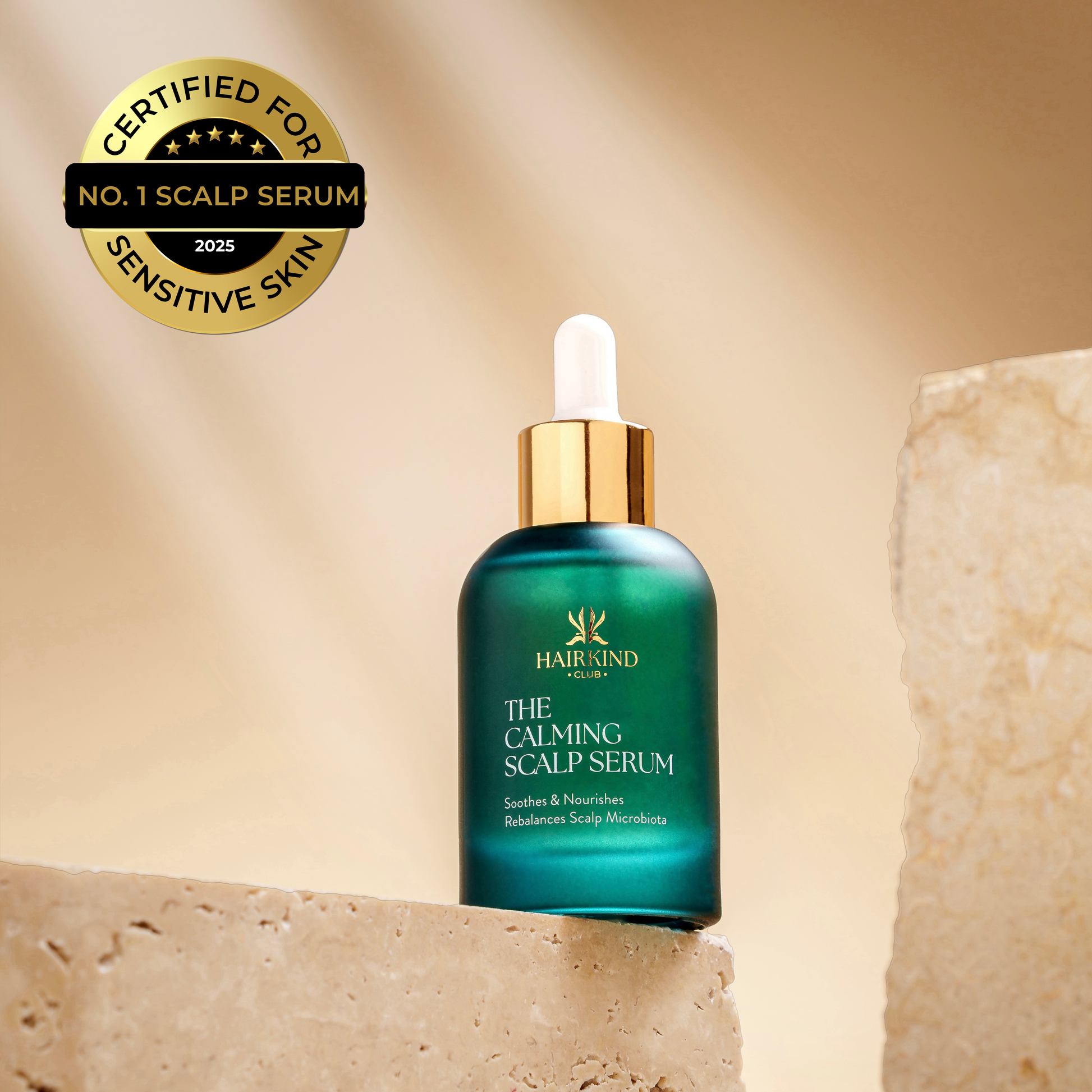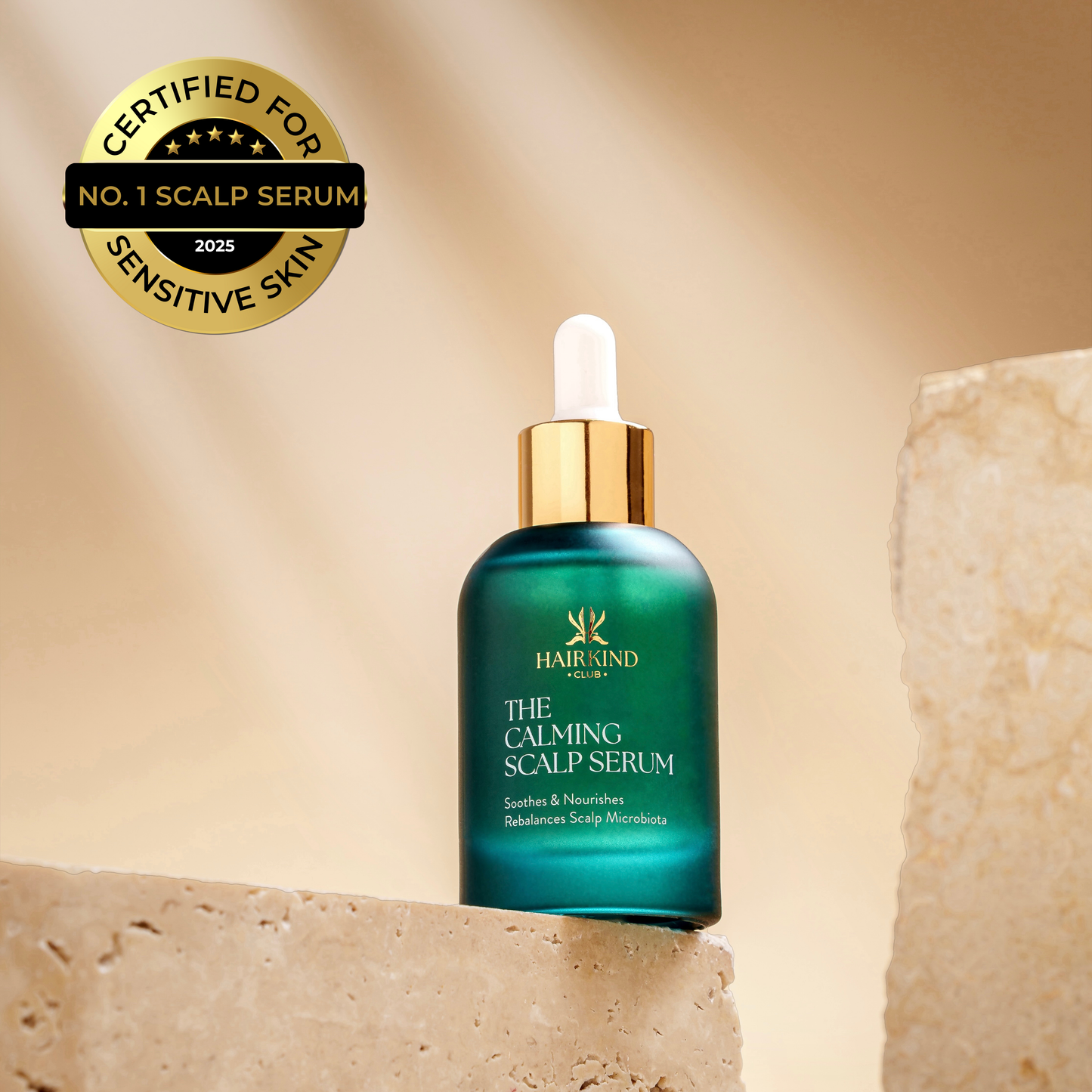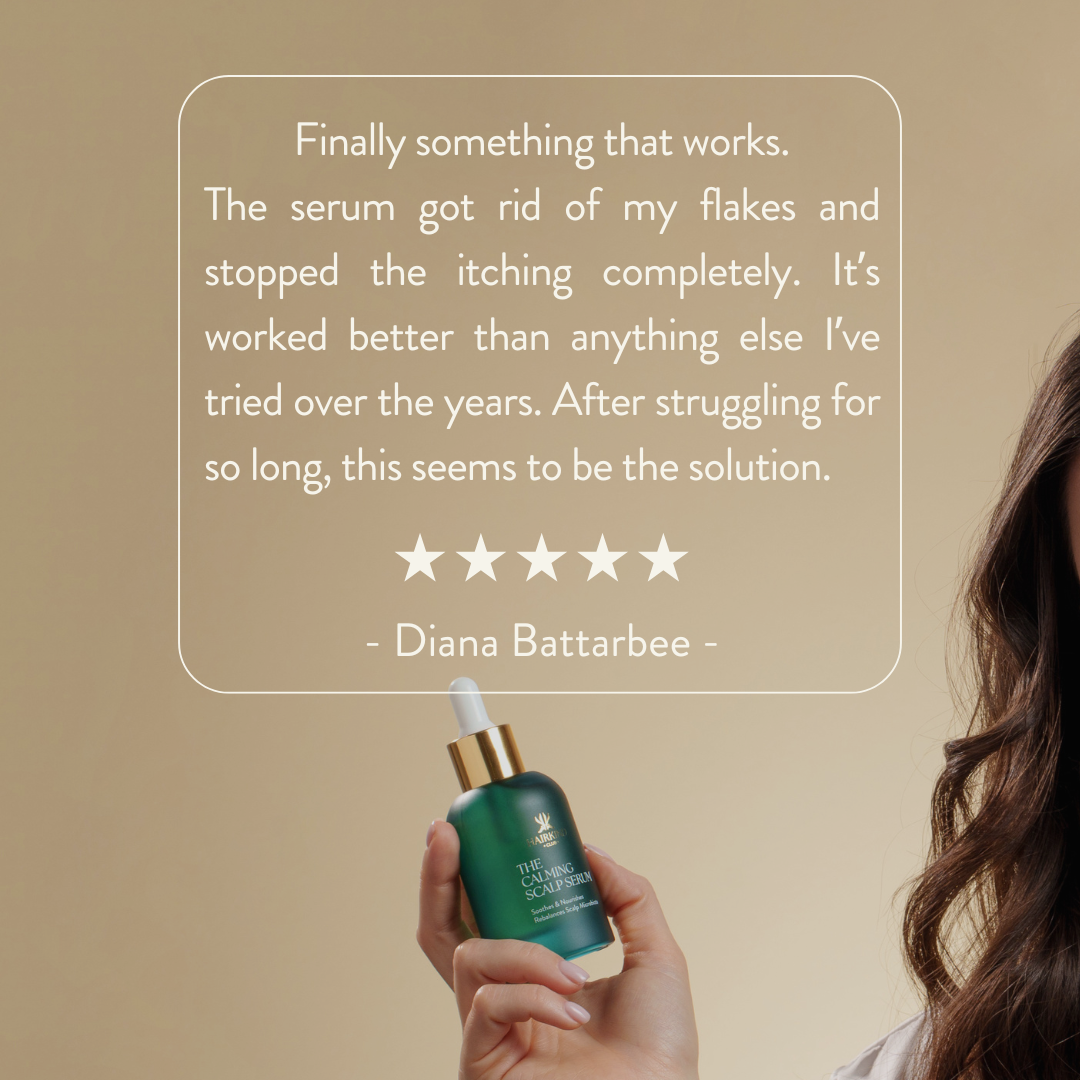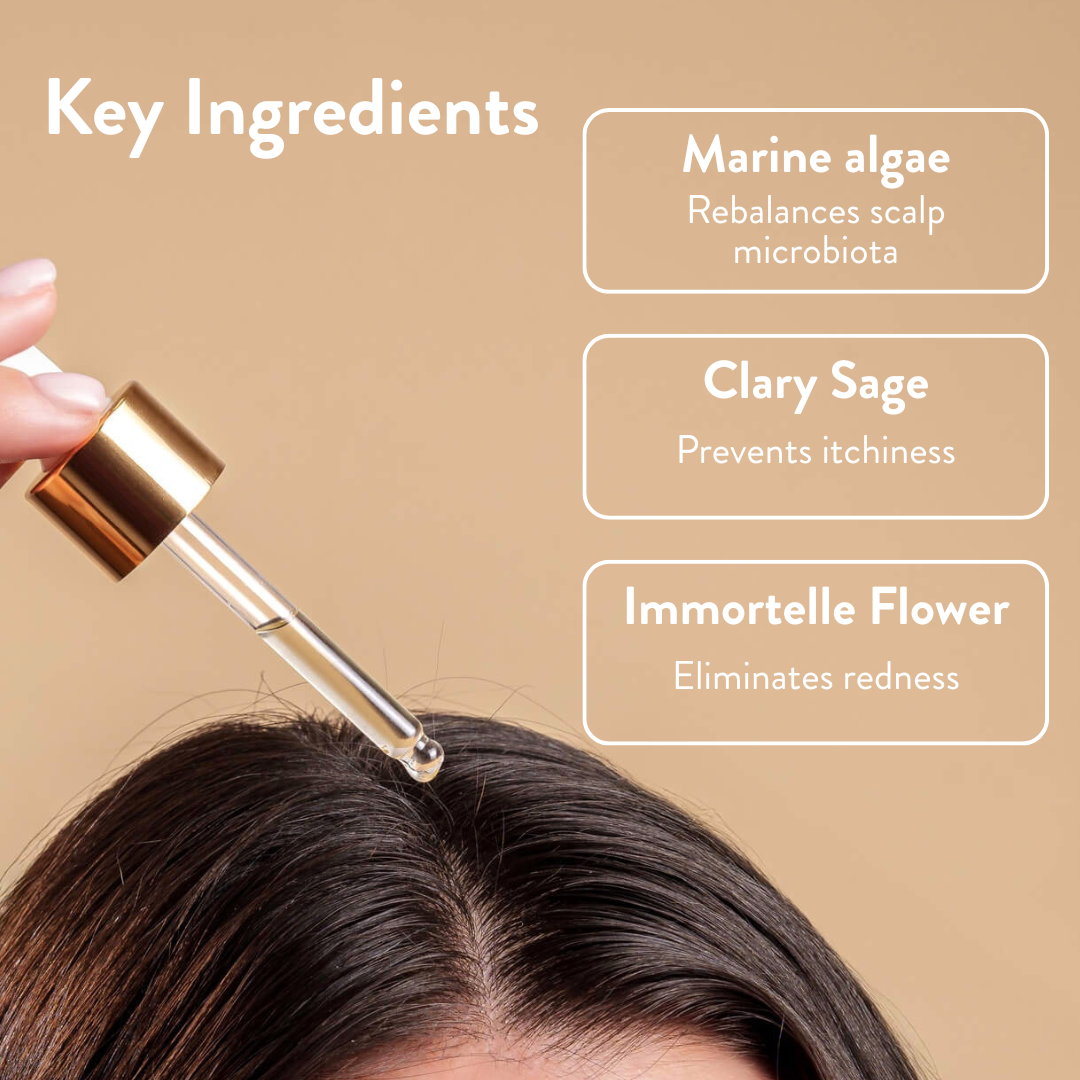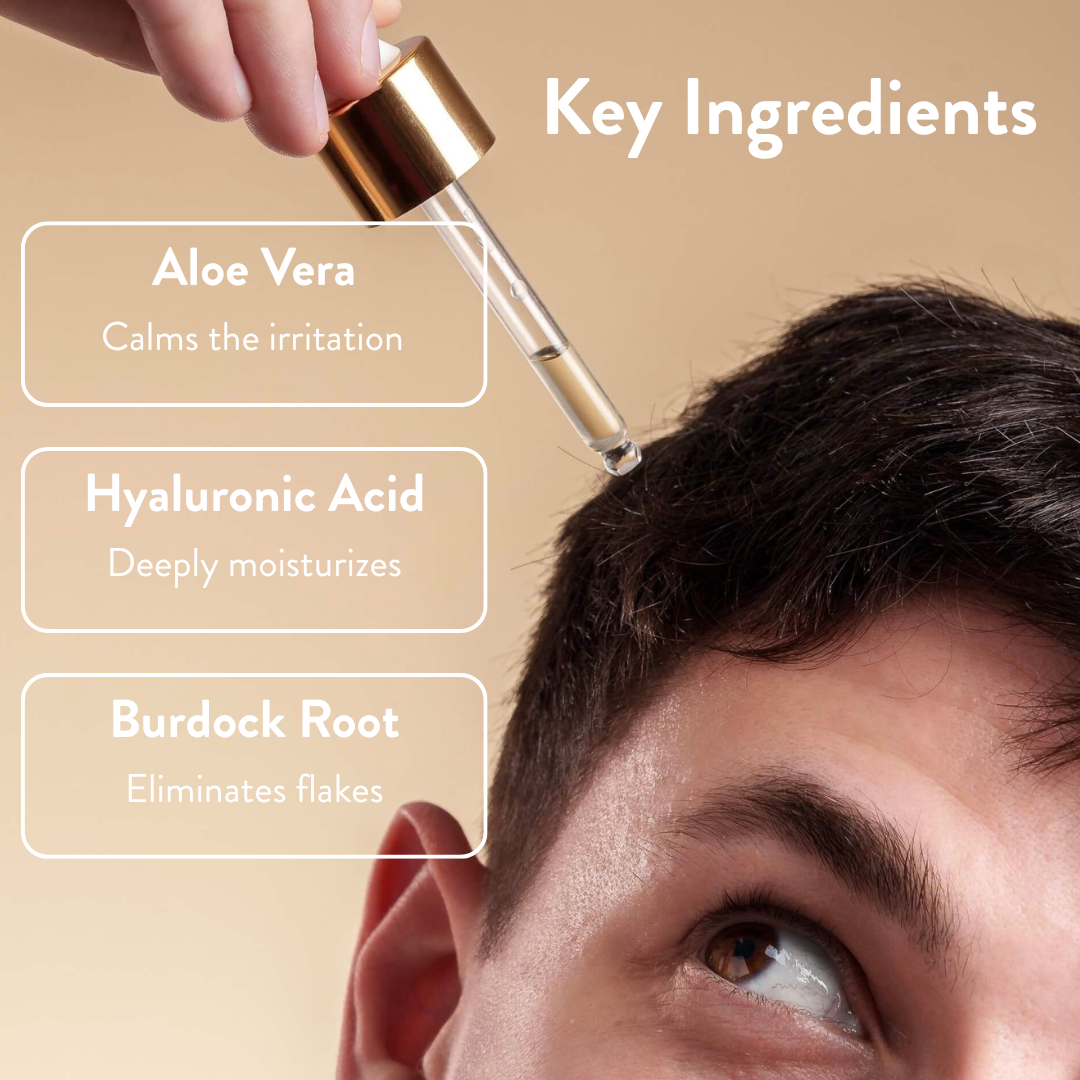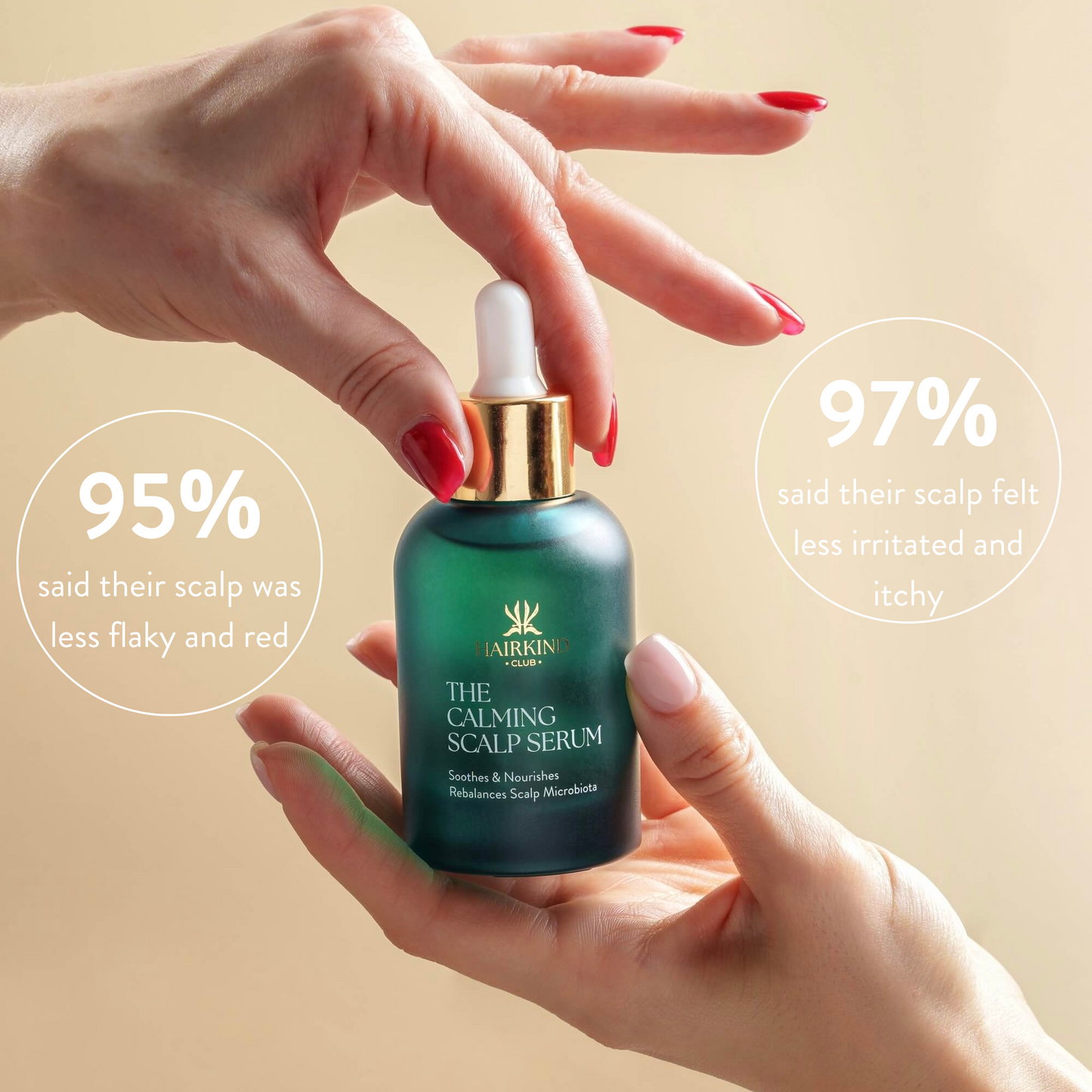Ever noticed how your hair and scalp seem to have a mind of their own sometimes? One month your scalp is perfectly balanced, and the next you're dealing with oil slicks or mysterious dry patches. If you've experienced these frustrating fluctuations, hormones might be the invisible puppet master pulling the strings.
From the tumultuous teenage years to the golden age of retirement, our bodies undergo numerous hormonal shifts that directly impact our scalp health. Let's explore how these changes manifest during different life stages and what you can do to maintain a healthy scalp through it all.

The Teenage Tsunami: Puberty and Your Scalp
Remember those awkward teenage years when it seemed like your body was working against you? Your scalp was feeling it too. During puberty, there's a dramatic increase in androgens (particularly testosterone) in both boys and girls, though boys experience it more intensely.
What happens to your scalp: Those androgens stimulate your sebaceous glands to produce more sebum (skin oil). The result? An oil slick on your scalp that can lead to:
- Greasy-looking hair, sometimes just hours after washing
- Increased risk of dandruff (the Malassezia yeast loves feeding on all that extra oil)
- Potential acne along the hairline or scalp
The science behind it: Dihydrotestosterone (DHT), a derivative of testosterone, binds to receptors in your oil glands, essentially telling them to "pump up the volume" on sebum production. For many teenagers, this means dealing with an oil production system that's suddenly operating at maximum capacity.

Young Adulthood: The Hormonal Rollercoaster
As you exit your teens, hormones generally stabilize somewhat, but new challenges emerge:
Stress Response
Young adulthood often brings increased responsibilities and stress. When you're stressed, your body produces more cortisol (the stress hormone), which can:
- Trigger excessive oil production
- Disrupt your scalp's moisture barrier
- Potentially lead to stress-induced conditions like seborrheic dermatitis

Birth Control Effects
Many young adults use hormonal birth control, which can significantly impact scalp health:
- Some experience reduced oiliness (a benefit for those with naturally oily scalps)
- Others might notice increased dryness
- In some cases, hormonal birth control can even trigger temporary hair shedding when starting or stopping

Pregnancy: The Ultimate Hormonal Remix
Pregnancy represents one of the most dramatic hormonal shifts a body can experience. During these nine months:
First Trimester: Rising estrogen and progesterone levels often lead to:
- Decreased oil production (great news if you typically have an oily scalp)
- Potential dryness or sensitivity for those with normally balanced scalps
- Many women report their hair looking its absolute best during pregnancy
Later Pregnancy: The continued high levels of estrogen actually extend the growth phase of your hair cycle, meaning:
- Less hair falls out than usual
- Your hair may seem thicker and more abundant
- Your scalp might need less frequent washing

The postpartum crash: After delivery, hormone levels plummet rapidly, and this sudden drop often triggers:
- A return to your pre-pregnancy scalp condition, sometimes with additional dryness
- Telogen effluvium (temporary hair shedding) as all those hairs that stayed in the growth phase during pregnancy synchronize their exit
- Potential scalp sensitivity as your hormone levels recalibrate

Middle Age: Perimenopause and Male Hormonal Changes
As we approach middle age, both men and women experience significant hormonal shifts.
Perimenopause (For Women)
Usually beginning in the 40s, perimenopause brings fluctuating estrogen and progesterone levels that can cause:
- Unpredictable scalp conditions—oily one week, dry the next
- Increased scalp sensitivity and potential for irritation
- Some women notice their scalp becomes progressively drier as estrogen (which helps maintain skin hydration) declines

Male Hormonal Changes
Though less dramatic than perimenopause, men also experience hormonal shifts in middle age:
- Gradually decreasing testosterone levels
- Potential changes in sebum production
- Some men may notice their scalp becoming less oily over time

Later Years: Menopause and Beyond
After the turbulence of perimenopause comes menopause itself, typically occurring around age 51. Meanwhile, men continue experiencing gradual hormonal changes.
Post-Menopausal Changes
With permanently lower estrogen and progesterone levels, most women notice:
- Significantly drier scalp conditions
- Thinner, finer hair
- Increased scalp sensitivity and potential for irritation
- For some, a paradoxical increase in facial/body hair while scalp hair thins (thanks, hormones!)

Aging Changes for Everyone
As we continue to age, regardless of sex:
- Oil production decreases across the board
- Scalp skin becomes thinner and more fragile
- Reduced cell turnover can lead to buildup and potential irritation
- Hair follicles produce finer hairs with less pigment

Working With (Not Against) Your Hormones
Now that we understand how hormones impact our scalp throughout life, here are some stage-specific strategies to maintain balance:
For Teens and Those with Hormonal Oiliness
- Use a gentle clarifying shampoo 2-3 times weekly
- Consider products with natural ingredients like Salvia sclarea (clary sage) water, Arctium lappa (burdock) root extract and Laminaria digitata (seaweed) extract to control oil and rebalance the scalp
- Look for formulations containing Viola tricolor (wild pansy) extract and Lavandula stoechas (lavender) extract for their soothing properties
- Avoid heavy conditioning products on your scalp
- Don't over-wash; it can trigger even more oil production

During Pregnancy
- Adjust your routine as your scalp changes
- Switch to more moisturizing products if experiencing dryness
- Use fragrance-free options if developing sensitivity
- Be prepared for postpartum shedding with gentle hair care

During Perimenopause/Menopause
- Incorporate more moisture-focused products with hydrolyzed hyaluronic acid and glycerin
- Consider weekly scalp treatments with natural ingredients like Helichrysum italicum (immortelle) flower water and Aloe barbadensis leaf juice
- Look for products with Phyllanthus emblica (amla) fruit extract to support scalp resilience
- Be gentle with heat styling as your scalp becomes more sensitive
- Stay hydrated and consider supplements that support skin health (after consulting your doctor)

For Aging Scalps
- Use gentle exfoliating treatments with natural ingredients like lactic acid to remove buildup
- Incorporate more moisturizing ingredients such as Saccharide isomerate and sodium hyaluronate
- Look for products containing Vitis vinifera (grape) fruit meristem cell culture and Chlorella vulgaris extract to revitalize aging scalp cells
- Consider scalp serums with Rosa canina (rose hip) flower extract for its regenerative properties
- Make scalp massage a regular habit to stimulate circulation

For All Hormonal Transitions
Regardless of which hormonal stage you're experiencing, targeted products can make a significant difference in managing symptoms. Our Calming Scalp Serum is specifically formulated to address many of the challenges that come with hormonal fluctuations. With ingredients like sea weed extract to rebalance the microbiome, immortelle flower water for inflammation and burdock root extract to reduce flaking, it provides comprehensive support for sensitive scalps. The hyaluronic acid component is particularly helpful during drier phases like menopause, while clary sage helps regulate oil production during oilier teenage and young adult years. As a water-based leave-in treatment, it hydrates without greasiness — making it suitable for all hair types experiencing hormonal scalp changes.

The Bottom Line
Our scalps are dynamic, constantly responding to the intricate hormonal dance happening inside our bodies. By understanding how these changes impact your scalp during different life stages, you can adapt your hair care routine accordingly and maintain a healthier scalp throughout your life.
Rather than fighting against these natural transitions, think of your changing scalp care needs as an opportunity to evolve your routine and discover new products that work in harmony with your body's current state. After all, our relationship with our scalp health is lifelong—might as well make it a good one.



